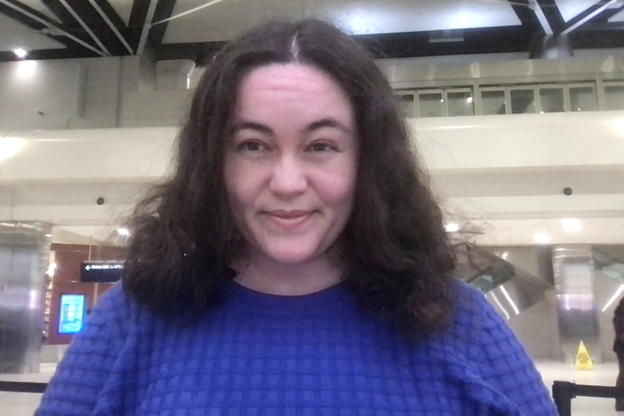 On Scripps College Week: How do you combat confirmation bias and polarization?
On Scripps College Week: How do you combat confirmation bias and polarization?
Sarah Marzen, assistant professor of physics, has a suggestion.
Sarah Marzen started in nonequilibrium statistical mechanics but quickly went over to theoretical biophysics and has been researching that ever since. She started as an undergraduate in physics at Caltech, winning the Haren Lee Fisher Memorial Award and Axline Award, and moved to U.C. Berkeley to get her Ph.D. in physics as a National Graduate Research Fellow and U.C. Berkeley Chancellor’s Fellow, joining the Redwood Center in Theoretical Neuroscience to learn more about how neuroscientists view the brain and receiving the Ling-Lie Chua Excellence Award. She then moved to MIT as a Physics of Living Systems Fellow. As a faculty member, she has received awards for her research, including the Mary W. Johnson Faculty Achievement Award and the Scialog Molecular Basis of Cognition Fellowship. She also sits on the Executive Committee for the American Physical Society Division of Biological Sciences and edits their quarterly newsletter, in addition to Guest-Editing various Special Issues and co-organizing several workshops.
Testing Interventions to Polarization in Opinion Dynamics Models
Our nation is a democracy, but scarily, today, aspects of that democracy are in question. A large fraction of people in America believe that the last election was stolen. Many even believe that high-profile Democrats eat children in Satanic rituals. At the very least, our nation is incredibly polarized. It turns out, perhaps unsurprisingly, that a key to helping a nation run is for the nation to come to a consensus on what is true based on all available information and then to decide, based on that understanding, on what to do.
To understand when that occurs, we turned to a new model of opinion dynamics— the dynamics of beliefs about issues when information is shared. We newly explicitly modeled people as Bayesians with varying amounts of cognitive bias. The benefit to using a model is that you can see the effect of cognitive biases by removing them from the model and, perhaps more importantly, that you can assess the effect of interventions before trying them in a laboratory experiment or in real social networks. We found that with no cognitive bias, Bayesians were able to come to a consensus, but that confirmation bias— the tendency to focus on evidence that agrees with your beliefs—led to polarization. To combat this, we asked what happened when people implemented an anti-confirmation bias, in which they paid attention primarily to evidence that disagreed with their belief. Rather than solving the problem, the anti-confirmation bias plus an in-group bias (in which people paid more attention to information from people who had similar beliefs) led to transiently chaotic beliefs and opinion fluctuations that never settled down. We hope that models of this kind help policy makers figure out what kinds of interventions to implement in social media so that the wisdom of the crowd really is the wisdom of the crowd.
Read More:
[Physics] – How Opinions Become Chaotic

Comments
One response to “Sarah Marzen, Scripps College – Testing Interventions to Polarization in Opinion Dynamics Models”
Love Interventions to Polarization! Just experienced 22 months of chaos. It’s not a healthy or productive way to respond to issues facing higher education. Thank you.